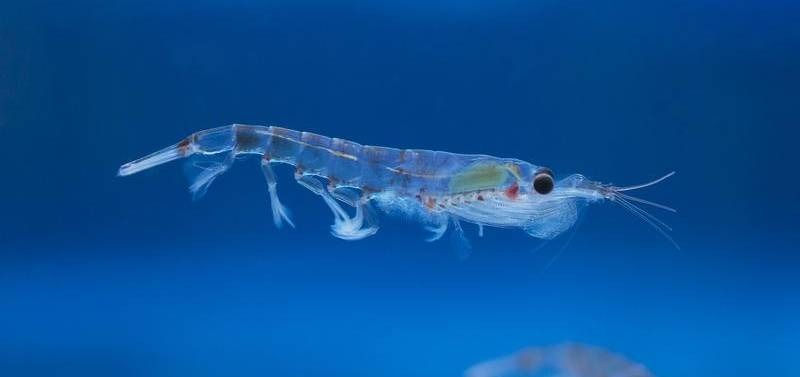The Marvels of Krill Oil: Why It's a Superior Choice for Pet Health
- Vitamals
- Mar 28, 2024
- 4 min read
While fish oil has been used for its numerous benefits for a long time, krill oil is now known to be a superior choice for enhancing the well-being of our health and our pets. In this blog post, we'll delve into the unique advantages of krill oil and show why it's a better alternative compared to traditional fish oil.

Part 1: Marine Contamination and Bioaccumulation:
Everything in life ends up in water.
Arsenic, cadmium, insecticides (like DDT) and dieldrin, heavy metals like lead and mercury, polychlorinated biphenyls (PCBs), the innumerable medications that get flushed down toilets, fluoride, etc. If you can name it, it ends up in our rivers & oceans.
Unfortunately, this ends up being a big problem for fish oil. Fish live their entire lives immersed in water. The bigger a fish gets, and the longer its life, the more time all those toxins have to enter their bodies and accumulate. The tiny fish get eaten by bigger fish and this cycle continues concentrating the toxins into their fats through the processes of bioacumulation and biomagnification.

In fairness, some waters in the world are much more, or less, toxin-laden than others. This leads to fish having varying levels as well. However, unless you know where the fish used to make your fish oil comes from, or more accurately, where the hundreds of fish that are used to make the fish oil comes from, you're gambling unnecessarily with you and your pet's health.
Here is where Krill Oil's first huge benefit comes into play. Krill are harvested in the pristine waters of the Antarctic Ocean, far away from any of the contamination listed above. Krill, being so tiny, also accumulate little if any toxins during their lives. These two factors combined greatly reduce the risk of contaminants other larger fish species face. This makes krill oil a safer option for human and pet consumption. Other marine omegas can't even compete for purity!

Part 2: Bioavailability
Most, if not all, fish oil omegas come in the form of triglycerides. Now this isn't necessarily a bad thing, however, once they're separated away from the flesh of the fish triglycerides are highly hydrophobic and don't mix or absorb well in the stomach or intestines of animals. Because it doesn't mix well, after ingestion the oil pools in a layer at the top of the stomach. If you've ever had the dreaded fishy burp hours after taking fish oil this is why! Due to this decrease in absorbability, in order to get the levels of omegas that provide your pet a real benefit you need to give them much higher amounts.

Luckily for us, krill oil also solves this problem. Krill oil's omegas come in the form of phospholipids which mix extremely well in the stomach and intestines. This not only cuts down on fishy burps/super fishy pet breath but also increases its absorption into their body significantly. This is great as you don't need to give your pet nearly as much krill oil to achieve the same or better benefits as fish oil.
The triglyceride form of DHA (the omega-3 that helps support your pet's cognitive function) found in fish oil also has issues passing the blood-brain barrier. Whereas the phospholipid form of DHA found in krill oil passes through much easier making it a much more effective choice.

Part 3: Stability
Fish oil oxidizes really easily. Although omega-3s are incredibly beneficial, they are unstable at a molecular level because of how unsaturated they are. DHA and EPA have 6 double bonds, which allow oxygen to sneak in and oxidize the fatty acids.

This oxidization process produces toxic byproducts such as Acrolein, Hydroxynonenal, and Malondialdehyde. Acrolein is famously known as the compound found in cigarette smoke that contributes to lung damage. While MDA and HNE are both cytotoxic and mutagenic which means they damage cells and negatively alter DNA.

Because of this, many fish oil supplements on the market are affected. Depending on what region you live a recent study shows that after testing 171 different products 40% exceeded voluntary safety recommendations and here in the US 27% of products tested were found to have more than twice the recommended levels of toxic byproducts.

As scary as this all sounds krill oil has a solution for us, Astaxanthin. Astaxanthin is the most powerful antioxidant found in nature. It's what gives krill and their oil its intense red color. Krill's natural levels of astaxanthin dramatically improve the stability of the oil and provides powerful support to prevent the oxidative stress risks associated with ingesting omega-3s. It also allows krill oil to be stored at room temperature without degradation and has a TON of benefits on its own as shown below.

Thank you very much for reading. Hopefully, with the above information you now have a better understanding of the unique benefits that make krill oil the perfect choice for your pets much-needed omega-3s. If you're interested in picking up a bottle to try or want to read more about its health benefits click the button below to go to our product page and learn more. We hope you, and your pets, have a wonderful rest of your day!










Comments